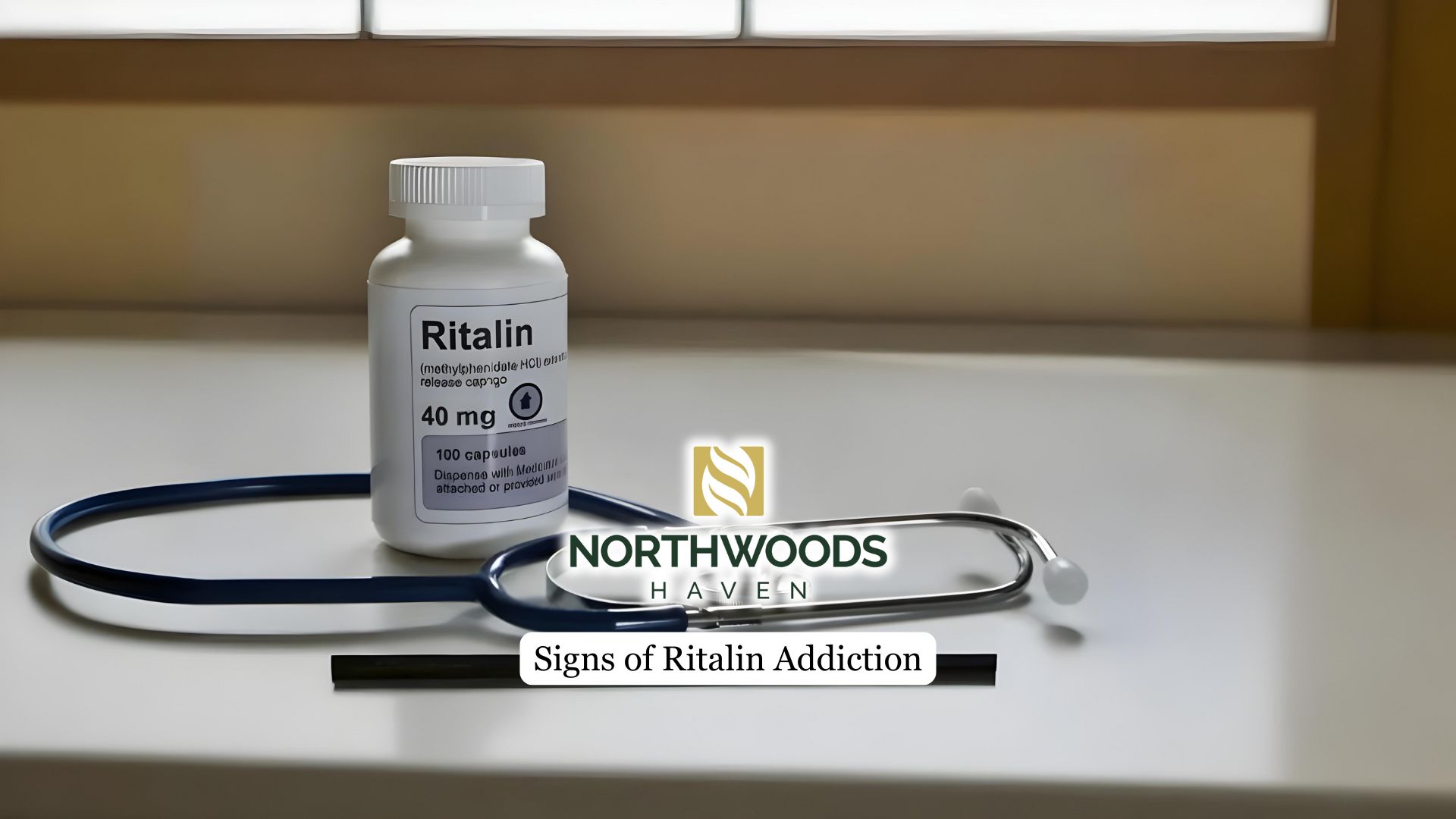Ritalin is a prescription medication used to treat Attention Deficit Hyperactivity Disorder (ADHD) and narcolepsy. While it is highly effective for these conditions, misuse of the drug can lead to addiction and serious health risks.
In this article, we will explore the signs of Ritalin addiction, focusing on both behavioral and physical indicators. We will also discuss the emotional effects of misuse, the long-term consequences of addiction, and provide insight into treatment options.
Understanding Ritalin and Its Uses
Ritalin, also known by its generic name methylphenidate, is a prescription medication commonly prescribed to treat Attention Deficit Hyperactivity Disorder (ADHD) and narcolepsy. The drug works by affecting the levels of neurotransmitters in the brain, particularly dopamine and norepinephrine. These chemicals are involved in regulating focus, impulse control, and wakefulness.
For individuals diagnosed with ADHD, Ritalin is often used to help improve attention span, reduce hyperactivity, and enhance concentration. By addressing the core symptoms of ADHD, Ritalin can significantly improve an individual’s ability to perform tasks and engage in daily activities. It is also prescribed to help people with narcolepsy stay awake during the day, as the drug works to promote alertness.
Is Ritalin Addictive?
Ritalin has the potential for abuse, especially when taken in higher doses or without a prescription. It is classified as a stimulant, and like other stimulants, it can create a sense of euphoria, heightened alertness, and increased energy. These effects may prompt some individuals to misuse the drug, hoping to experience its pleasurable sensations or to gain an edge in productivity.
Addiction to Ritalin involves both psychological and physical dependency. Over time, individuals who misuse Ritalin may develop a psychological dependency, where they feel compelled to continue using the drug despite negative consequences, driven by cravings and a need for its effects. Additionally, they may develop a physical dependency, as the body becomes accustomed to the drug, requiring larger doses to achieve the same effects. This tolerance can quickly escalate, and withdrawal symptoms, such as fatigue, depression, and anxiety, can emerge when the drug is discontinued, further reinforcing the cycle of addiction.
Breaking this cycle can be challenging, but our Ritalin addiction treatment program offers the proper support to address both the physical and psychological aspects of Ritalin addiction. We focus on helping individuals overcome these challenges and rebuild their health for long-term recovery.
Behavioral Signs of Ritalin Addiction
One of the earliest warning signs is an increased risk-taking behavior, where individuals take higher doses than prescribed or use the drug in unsafe environments, such as at work or in social settings.
Another common sign is an obsession with obtaining and using the drug. Individuals may go to great lengths to find Ritalin, even if it means lying or engaging in dishonest behavior. As addiction takes hold, there may also be changes in social circles or an increasing tendency toward isolation.
A person addicted to Ritalin may begin to prioritize obtaining the drug over relationships and responsibilities, making it a key behavioral red flag.

Physical and Emotional Signs of Ritalin Addiction
Physically, users may experience weight loss, as the drug suppresses appetite. Insomnia is another common physical symptom, as Ritalin’s stimulant properties interfere with normal sleep cycles. Additionally, an increased heart rate and elevated blood pressure can be signs that the body is under stress from Ritalin abuse.
Emotionally, individuals may experience mood swings, irritability, and heightened anxiety. The stimulating effects of Ritalin can make individuals feel overly alert or agitated, contributing to erratic emotional responses. Over time, these emotional symptoms can lead to increased stress and difficulty managing day-to-day activities.
Long-Term Consequences of Ritalin Addiction
The long-term effects of Ritalin addiction extend beyond the immediate physical and behavioral symptoms. Chronic misuse of Ritalin can significantly impact a person’s mental health, leading to anxiety, paranoia, depression, and even psychosis in some cases. These psychological issues can worsen over time and may be difficult to treat without proper intervention.
Ritalin addiction often leads to negative social, academic, and professional consequences. Individuals may experience a decline in work performance, strained relationships, and difficulty maintaining personal commitments. Long-term addiction can isolate individuals from their support networks and prevent them from achieving their personal and professional goals.
Treatment Options for Ritalin Addiction
Fortunately, Ritalin addiction is treatable, and there are several treatment options available for those who need help. The first step in treating Ritalin addiction is typically detoxification, where the drug is gradually removed from the body under medical supervision. This process helps manage withdrawal symptoms and reduces the risk of complications.
Following detox, therapy and counseling are essential for addressing the underlying psychological aspects of addiction. Behavioral therapy, such as Cognitive Behavioral Therapy (CBT), helps individuals identify and change the patterns of thinking that contribute to their drug misuse. Support groups and outpatient programs can also be beneficial for ongoing recovery.
In more severe cases, inpatient rehabilitation may be required, where individuals receive 24-hour care and support. It’s crucial for those struggling with Ritalin addiction to seek professional help as soon as possible, as recovery is most successful when the addiction is addressed in its early stages.
Final Thoughts from Northwoods Haven
Ritalin addiction can severely impact one’s physical, emotional, and social well-being. At Northwoods Haven, we understand the intricacies of Ritalin addiction and offer a comprehensive treatment program that addresses both the psychological and physical aspects of recovery. Our team provides personalized care, helping individuals manage withdrawal, rebuild their health, and develop healthy coping strategies. Through expert guidance and support, we help our clients regain control and move toward long-term recovery.



